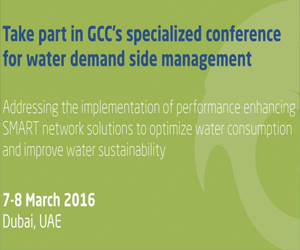Africa > North Africa > Industry
Industry in North Africa
-
Africa: China - Africa's Springboard to Industrialisation
CHINA, 2016/05/10 China is fast proving its mettle on its commitment to helping African nations come out of their situations to occupy world positions of prosperity. While some people on the continent are from presently on to wake up to that reality, the Asian country has a drawn-out vision which augurs well with the developmental aspirations of African nations. That China has emerged as Africa's major trading partner in the last few years is undisputable, with trade reaching $975,92 billion between 2011 and 2015. -
Siemens to Invest MAD 1.1 Billion in Tangier’s Automotive City
MOROCCO, 2016/01/05 German company Siemens plans to build an industrial unit to manufacture wind turbine blades in Morocco’s Tangier’s Automotive City (TAC). The engineering giant will begin construction of the new plant in March 2016 for an estimated cost of MAD 1.1 billion, according to the Regional Investment Center (CRI). The wind turbine blade facility will cover an area of 13 hectares with a production capacity of 600 blades per year and is expected to employ 670 people, L’Economiste reported in its Monday issue. -
Egypt to apply new round of customs deductions on EU-imported cars
EGYPT, 2016/01/02 Egypt will apply a new phase of 10 % cuts on customs of vehicles imported from the European Union in accordance with a comprehensive EU-Egyptian trade agreement, sources at the Cairo airport customs said on Saturday. “These reductions will be applied upon the arrivals of the owners of modern European cars in all the Egyptians ports and airports,” the sources said. The EU-Egypt Association Agreement, which entered into force in 2004, provides that customs duties on vehicles "shall be reduced by 10% annually starting six years next the entry into force of the Agreement, or January 2010, with duties completely eliminated within 16 years next entry into force of this Agreement," according to the official website of the EU. -
Algeria targets pharmaceutical production
ALGERIA, 2015/12/26 A drive to attract foreign investment in Algeria’s pharmaceuticals industry, part of a wider bid to diversify the economy and become a major exporter of pharma products, looks to be yielding results. As the second-major pharmaceutical market on the continent next South Africa, with annual sales of $3bn, hydrocarbons-rich Algeria is a particularly attractive to international drugs companies. Comparative advantages Request for medication is growing at double-digit rates, driven by a range of different factors. One of the biggest contributors to rising sales is 39.5m-person Algeria’s changing demographics, which are characterised by rising numbers of adolescents and the elderly as a proportion of the total people, according to the UN. Algeria’s age dependency ratio, which measures those under the age of 15 or over the age of 64 as a % of the working-age people, stood at 52% last year, as per World Bank figures. -
Tunisia looks to boost entrepreneurship
TUNISIA, 2015/12/26 With job creation a priority, Tunisia is rolling out new advisory and financing mechanisms to increase support for entrepreneurs, inclunding entrepreneurship credit programmes and business incubators. Donor support Financial support for entrepreneurs in Tunisia is being made available through several channels. For example, the $1.2bn in loans announced by the World Bank in February 2014 to support economic and political reform in Tunisia included $100m earmarked for lending to small and medium-sized companies (SMEs). The Overseas Private Investment Corporation of the US, meanwhile, has launched a $37.5m lending facility for Tunisian SMEs in partnership with several local banks, with a focus on the franchising sector. In a separate development, a local financial group, Microcred Tunisie, has pledged loans for entrepreneurs aged 18 to 35. -
Industry & Trade Diversification: the key to Africa’s future
CASABLANCA, 2015/12/02 Industry leaders and policy makers seek to tap world price chains The sea change this year in world commodities markets has profound implications for Africa, a continent endowed with an abundance of natural resources and highly dependent on the export of raw materials. With a lot of economists forecasting a difficult panorama ahead for petroleum and metals producers, they are as well drawing on lessons from completed commodity booms. Compared to other regions, Africa has failed to create long-lasting periods of economic evolution and researchers have seen a strong correlation with market shifts. Half of the continent’s cycles of economic expansions have been linked to booming commodity prices, according to the IMF. The other half has been supported by increased competitiveness, a factor that led to additional sustainable increase in the long-term. Today, Africa faces a fundamentally different world economic landscape than the one that drove it to consistent 5% increase over the completed decade. Additional than ever, African governments and private sectors cannot depend so heavily on the vast wealth held within their territories, and must instead look to diversify their industries. -
Africa Industrialization Day through the micro lens
AFRICA, 2015/11/30 Despite my years of research experience on African industrial development, it has come to my attention for the initial time that there has been a long tradition of celebrating Africa Industrialization Day on November 20—each year since 1990! But why celebrate African industrialization? In short, to raise world awareness on the importance and challenges of African industrialization and to stimulate the international community\'s commitment to the industrialization of Africa. In addition, African industrial development contributes to not just in general economic and social development but as well to this year’s theme: Small and medium enterprises (SMEs) for poverty eradication and job creation for women and youth. 1. Why do we care about African industrialization? All nations should have an active industrial policy to achieve sustainable development: Sound industrial policies present Africa opportunities to invest in its human and physical capital formation, in technological innovation, and in supportive institutions. In addition to the merits of industrialization on its own, African industrialization as well helps nations achieve pro-poor increase and safeguards economies against market and climate-related shocks. Thus, African industrialization is essential to spurring increase and improving in general well-being on the continent. -
Prime Minister Abdelmalek Sellal
ALGERIA, 2015/08/24 Prime Minister Abdelmalek Sellal stressed Thursday during his working and inspection visit to the province of Constantine the need to move towards biotechnology, considered as the therapy of the next, to be at the forefront of the field of pharmaceutical industry. While he laid the foundation stone of an insulin unit and inspected a project of a pharmaceutical unit of Saïdal group at the industrial zone of Constantine, Sellal called ob the group managers to vary production and ensure at least 30 % of national production. Prime Minister recalled that Algeria currently has 600-700 public pharmacies, adding that national will focus on production as the management of those pharmacies should be left to professionals. -
Renault factory in Morocco stirs controversy in France
FRANCE, 2015/07/01 The grand opening of Renault factory in Morocco on Thursday stirs controversy in France. The new facility was opened in Tangiers and is aimed at producing new “low cost”models directed to Europe and Africa. With the approaching presidential elections, the issues was addressed by a lot of politicians. The former French Industry Minister Christian Estrosi accused the CEO of Renault-Nissan of “not keeping his commitments vis-à-vis the French national.” No. 2 in the National Front, Louis Aliot,spoke about a “scandal” resulting from “absolutely crazy system.” -
PSA Peugeot Citroen plant in Morocco
FRANCE, 2015/06/25 HM King Mohammed VI of Morocco chaired, on lat Friday in Rabat, the signing ceremony of an agreement between Morocco and French group PSA Peugeot Citroen providing for the setting up of an automobile factory in the integrated industrial platform "Atlantic Free Zone" in the region of Gharb Chrarda Bni Hssen. Next highlighting the positive results of the automobile industry as the initial exporting sector in Morocco in 2014, Minister for Industry, Trade, Investment and Digital Economy Moulay Hafid Elalamy said that the new plant reflects the trust that Morocco enjoys part leading car manufacturing groups.
- Trending Articles
-
- JAPAN: More of the same from Japanese polls next weekend
- GERMANY: VW says US 'Dieselgate' settlement not to be replicated in Europe
- PHILIPPINES: Will services continue to drive the Philippine economy?
- ISRAEL: Israel's tech boom under threat
- CONGO BRAZZAVILLE: Congo: Total abandons oil field citing decrease in global oil prices
- EUROPEAN UNION: EU meets without Britain for first time since Brexit vote






